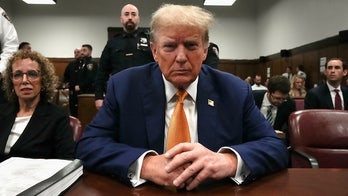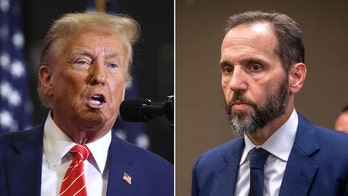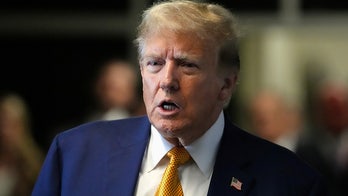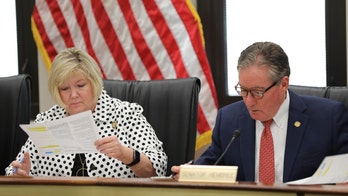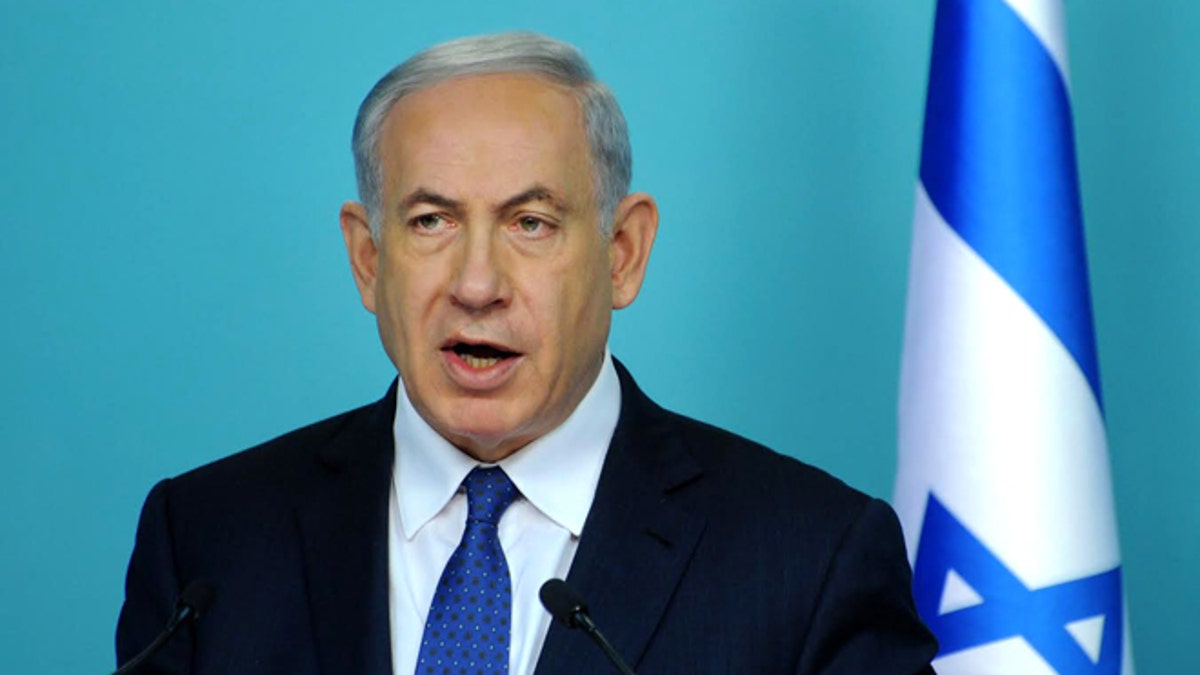
April 1, 2015: Israeli Prime Minister Benjamin Netanyahu speaks during a press conference in Jerusalem. (AP)
Israeli Prime Minister Benjamin Netanyahu on Friday blasted the framework nuclear deal with Iran, saying it would pose a "grave danger" to the region and "threaten the very survival" of his country.
The Israeli leader, speaking after a meeting with his top advisers, announced his Cabinet is united in "strongly opposing" the agreement outlined Thursday in Switzerland at the close of the latest marathon round of nuclear talks.
In his most detailed comments yet on the announced plan, Netanyahu said it would not shut down a single nuclear facility or destroy a single centrifuge.
"The deal would legitimize Iran's illegal nuclear program," Netanyahu said. "It would leave Iran with a vast nuclear infrastructure."
The remarks make clear that a late-day phone call Thursday between President Obama and Netanyahu did little to assuage the prime minister's concerns with the framework -- which is supposed to be the basis for a final deal that international negotiators are working to craft by a June 30 deadline.
Aside from picking apart the terms of the framework, Netanyahu also made another demand to negotiators -- to ensure that any final agreement includes a "clear and unambiguous" commitment by Iran of "Israel's right to exist."
The demand comes after a top Iranian military leader reportedly said "erasing Israel" off the map is "non-negotiable."
To that, Netanyahu said: "The survival of Israel is non-negotiable."
On Thursday, Secretary of State John Kerry and Obama touted the agreement as a major and "historic" development that paves the way for a deal that would prevent Iran from obtaining a nuclear weapon.
The president appealed to U.S. allies and congressional leaders to give the plan a chance, suggesting the alternative would be either continued development of Iran's nuclear program or war in the region.
In the Rose Garden, Obama even directed part of his remarks at Netanyahu.
"It's no secret that the Israeli prime minister and I don't agree about whether the United States should move forward with a peaceful resolution to the Iranian issue. If in fact Prime Minister Netanyahu is looking for the most effective way to ensure Iran doesn't get a nuclear weapon, this is the best option," Obama said.
The deal calls for cutting Iran's installed centrifuges by two-thirds, and restricting its development of highly enriched uranium -- among dozens of other provisions -- in exchange for sanctions relief once inspectors verify Iran's compliance.
Speaking with Fox News, White House Press Secretary Josh Earnest on Friday said those inspections would be able to determine if Iran were flouting any agreement, which would result in sanctions being re-imposed.
"This is the most intrusive inspections of any country's nuclear program that have ever been put in place," he said.
Earnest also argued that the deal would not threaten Israel's survival, calling it a "good deal for Israel."
But Netanyahu voiced concern that sanctions could be lifted too soon, in turn bolstering Iran's economy and allowing the country to continue fueling "terrorism throughout the Middle East."
"Such a deal does not block Iran's path to the bomb, such a deal paves Iran's path to the bomb," Netanyahu said, repeating a message he delivered in his recent address to the U.S. Congress urging negotiators to seek a different deal.

